Navigating Life’s Obstacles to Grow, Achieve and Shine
By Dawn Robinette
Photography by David Teran
To realize her dream of becoming a plastic surgeon, Susan Crockett, MD, had to land a general surgery rotation during her residency. But that didn’t happen. “I was devastated because you had to do general surgery to get into plastics.”
Her next rotation was OB-GYN. There, the doctors were performing laparoscopic surgery. “They were doing much cooler surgery than general surgery. And I just fell in love with it. That pathway just opened like it was where I was supposed to be.”
Dr. Crockett now practices at Virtuosa GYN, the premier location for advanced benign gynecological surgery in San Antonio. “Some of it is even plastic surgery, like reconstructive pelvic surgery, but nobody gets to see my work,” she jokes.
Named a Top Doctor by “US News and World Report” for robotic gynecologic surgery and recognized as one of San Antonio’s best doctors for many years, Dr. Crockett landed where she is thanks to roadblocks along the way. That includes missing out on that general surgery residency.
“We think we know what life’s going to be, but you really only understand it looking backward. I was meant to be here. When I was choosing a career, I couldn’t have said, ‘I want to be a robotic surgeon.’ That didn’t even exist. Robotic surgery didn’t even come about until I was in my 40s. But God kept putting me on the right path and opening up the doors. And I kept walking through.”
Her passion for robotic surgery stems from the impact it has for her patients. “It’s completely life-changing and very rewarding. If you’ve ever met a woman who can’t get out of her house because of bleeding or prolapse issues, and then you see what they’re like after their surgery – they come in, and they’re happy. It’s just an amazing thing to be able to do.”
With joysticks, foot pedals, and a console reminiscent of a video game, robotic surgery sounds like a futuristic movie. “I can replicate anything that I would do in open surgery, but I’m doing it in much finer detail because I’m right in there looking at it.
“It makes surgery so much easier for patients. I’ve gone from doing hysterectomies as mostly open with large incision surgeries to transitioning to laparoscopic, to now doing robotics. So instead of my patients having six weeks of recovery from a big incision and three days in a hospital, 95 percent of my surgeries go home, same day, even my really big cases. My whole purpose for surgery is to make it easier for women and for them to be in more control of their lives.”
For Dr. Crockett, that extends beyond the physical. “So much of what we struggle with as women is mental, like our weight and our habits and our relationships and just all of those things that impact our health as well.”
That mental struggle became an issue for Dr. Crockett when her ex-husband, her children’s father and husband of 22 years, died unexpectedly. To help her manage her grief, she turned to life coaching.
“Life coaching is basically brain management. We have the ability to handle so much in life, both the good things and the bad things. My personal philosophy is really to always keep growing. As I started learning more about brain management and life coaching, I wanted to increase my own capacity. How much more am I capable of, and how much greater can I do for people? How can I better help my patients?”
The exploration led Dr. Crockett to become a certified life coach. She opened an online coaching business and created a podcast, “Becoming Virtuosa,” where she shares practical advice about navigating life’s transitions and obstacles.
When COVID-19 struck, Dr. Crockett saw the need to help her fellow healthcare workers manage the stress they were under. She created a website with free access to life coaches through virtual lectures and sessions. “Every day, we would do a lecture to coach frontline workers on how to handle the stress and the fatigue to better deal with the trauma they were experiencing.
“I was actually teaching people how to thrive through adversity. We don’t grow unless we get challenged. We can look at bad things when they happen as terrible things. But we can also look at them and see them as stones that sharpen our ability to grow, handle more and be able to be more and do more as people,” she explains.
Her efforts were recognized by the Women of Heart Awards, which named Dr. Crockett as one of only 50 women internationally as being pioneers in their fields.
“I want to be part of empowering women, lifting them up and teaching them that they have the ability to rise above where they are, to be encouraged by each other, and to pursue those things within their heart.”
In spite of the accolades, the coaching business did not succeed. “I say flop rather than failure because I’m rethinking the word failure. It was an experiment that didn’t work. Historically, I’ve been hard on myself. But I’m learning that there’s really no failure, except for not aligning yourself with where you’re supposed to be going.”
For Dr. Crockett, that path includes turning her podcast into a television show, “Soul Healing Sundays,” debuting this summer. The seeds for the show were planted years ago when she came across a quote from Marianne Williamson:
“Our deepest fear is not that we are inadequate. Our deepest fear is that we are powerful beyond measure. It is our light, not our darkness that most frightens us. And we ask, who am I to be brilliant, gorgeous, talented, fabulous? Actually, who are you not to be? You are a child of God, and your playing small does not serve the world.”
That quote fuels where she is today and the advice she gives other women:
“Don’t be afraid to be a badass.”
“As women, we have a tendency to think ‘who am I to do that?’ Like when I got knocked down from wanting to go into general surgery, who did I think I was anyway? Then figure out a way to strap on your boots and go on anyway. I did not come into my badassery until the last two or three years, and I’m like, yeah, go for it.
“I think people need to think about what they have and what they’ve been given in their lives and what those talents and gifts that God has given them are. And to realize that wherever they are on the spectrum of the gifts and talents and people surrounding them, that they can take what they have and move forward and grow.”
“We have a choice about managing our brains and what thoughts we choose to think and how much that affects the outcome in our lives,” she explains. “Until I figured out how to get a hold of the demons in my mind and stop those negative feedback loops that I was doing to myself, I really didn’t start going to where I am right now.”
Managing that determines how people deal with setbacks, she explains. “Two people can go through the same tragedy, and one person will be beaten down by it. And the other will be stronger on the other side of it. It all has to do with our thought world.”
The positive change she’s seen in her own life further fuels her desire to help others. “There’s so much reward in giving others the permission to do the same thing. It’s emboldened me. It’s given me the courage to increase my capacity, knowing that I am going to reach more people and have more impact, and shine a little bit brighter. There’s going to be more to deal with and more struggle where you can also flip that around and increase your capacity, and you just keep growing. You just keep spreading the light.
“There was something about losing my ex-husband that changed how I look at every day. It’s given me and my children a real appreciation and richness for life. Every day waking up is a blessing. I look forward to that and cherish that. Tomorrow is a promise. So live life to your fullest, take it all, live it all deeply – the good and the bad.”
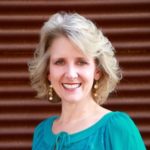


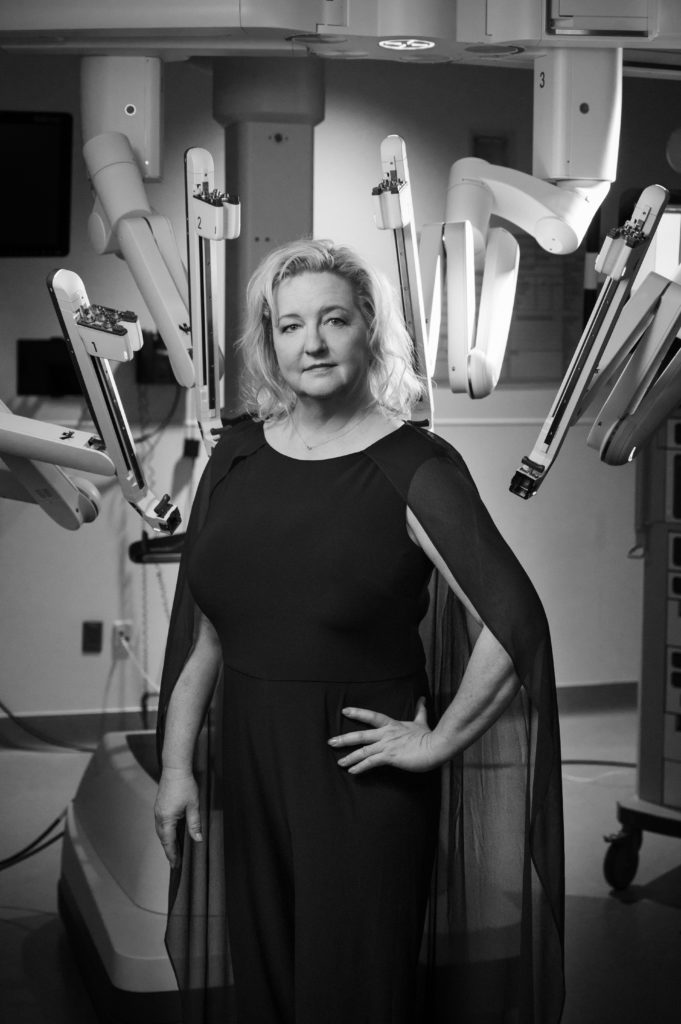
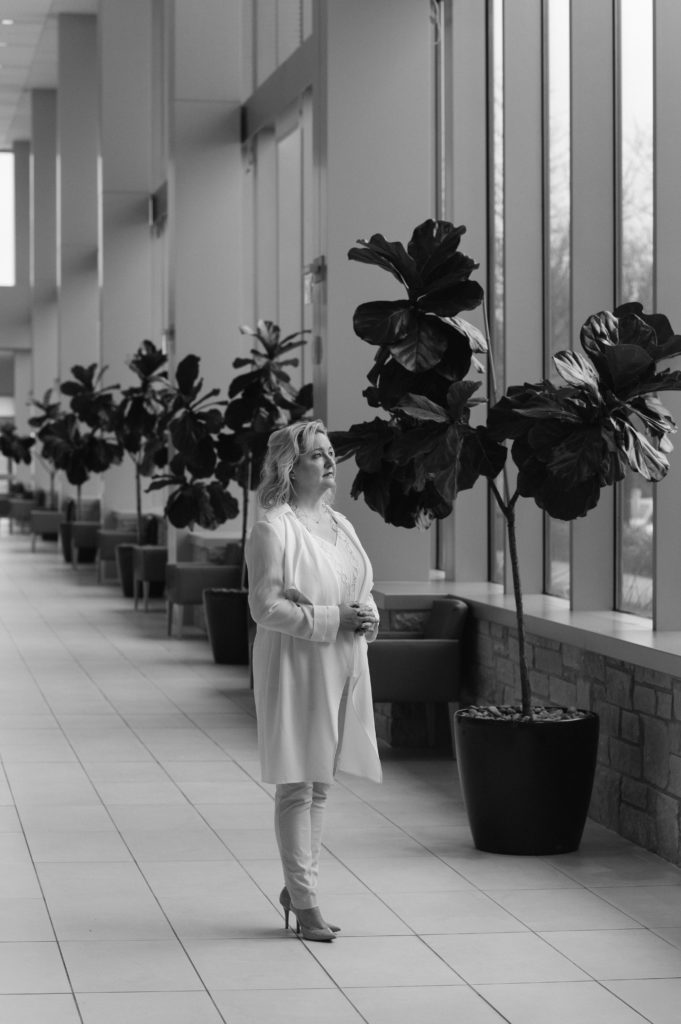
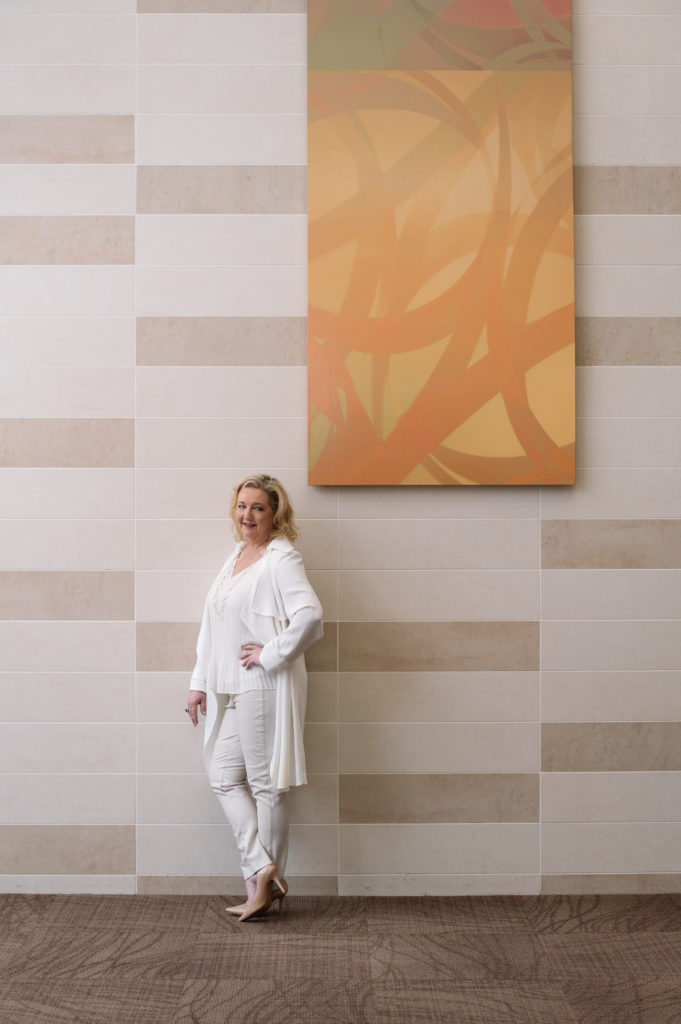
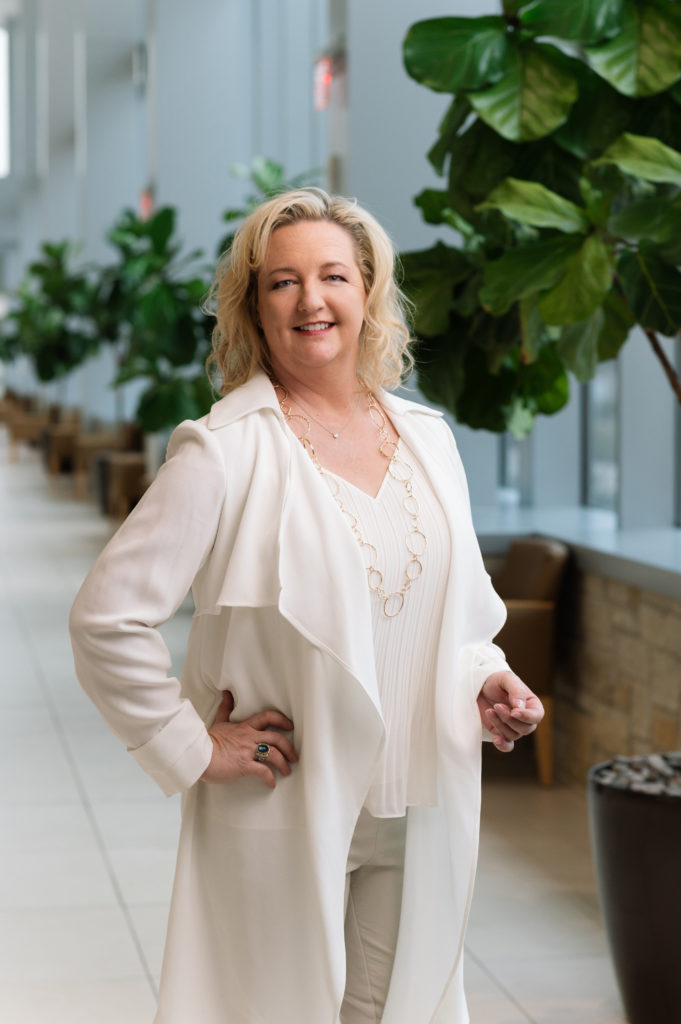




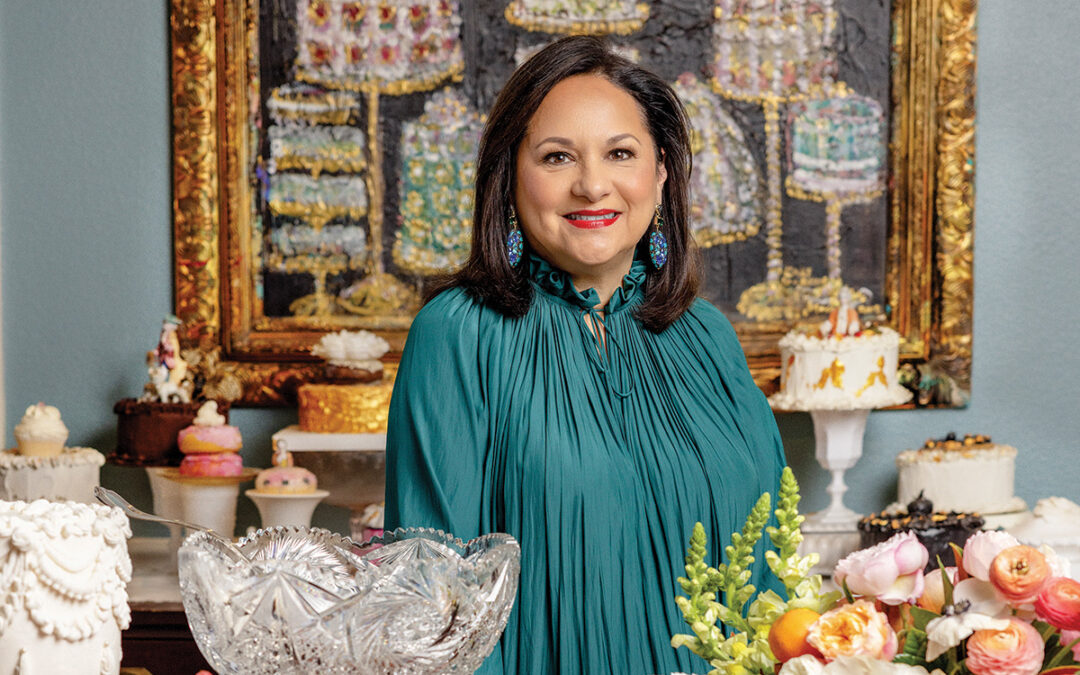
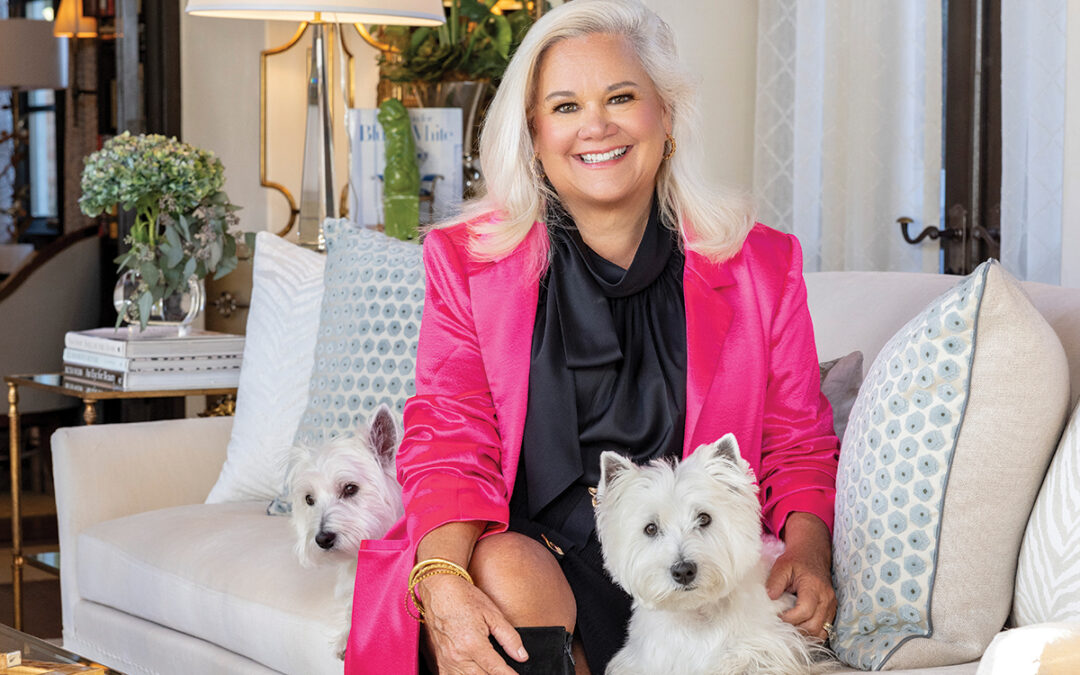
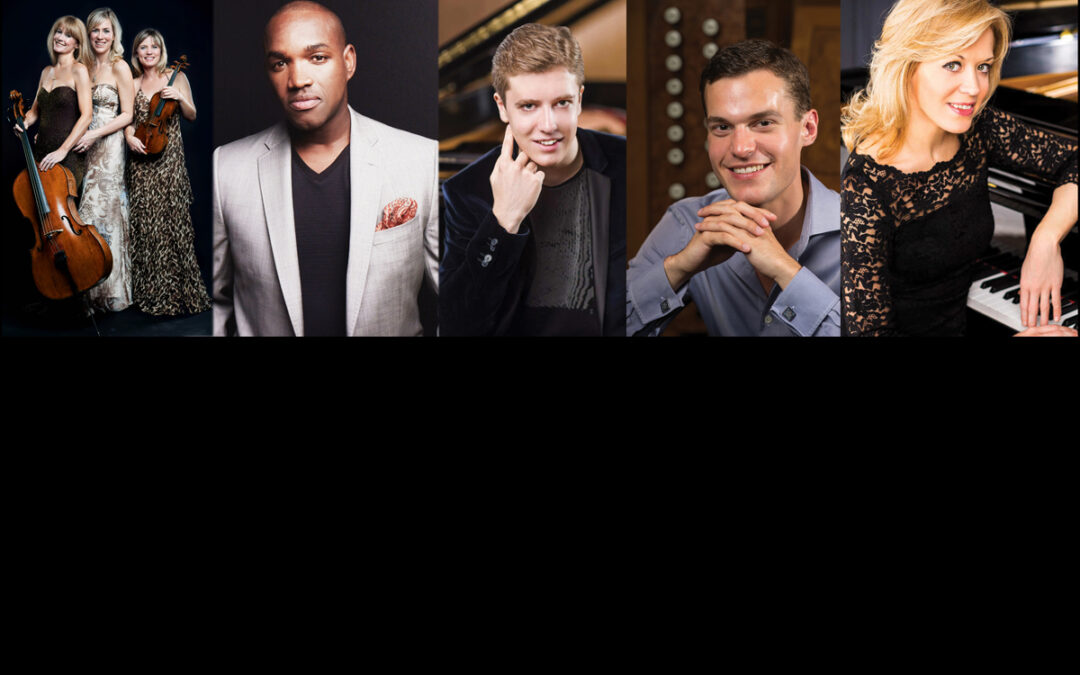
0 Comments